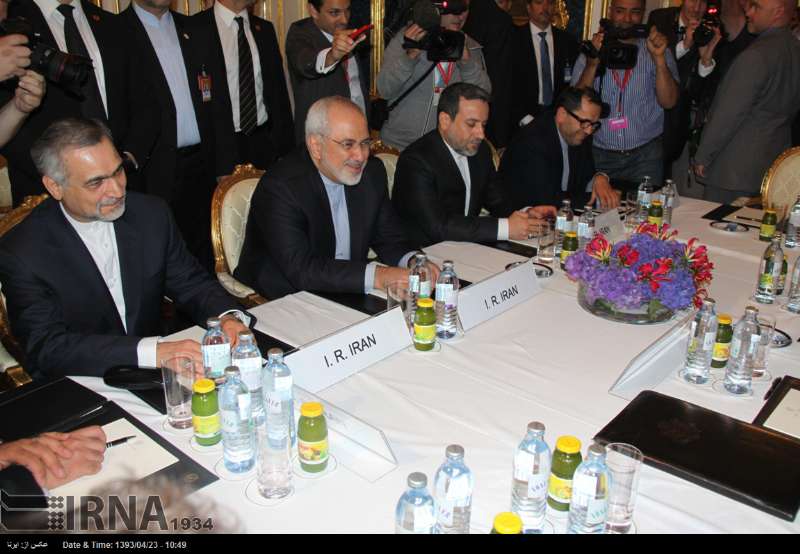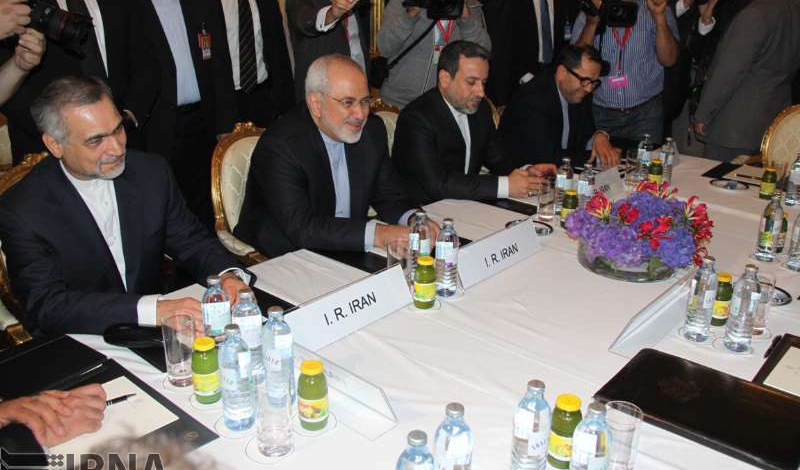 Press TV has interviewed political commentator Seyed Mostafa Khoshcheshm to get his views on talks between Western world leaders and Iran over Tehranís peaceful nuclear program.
Press TV has interviewed political commentator Seyed Mostafa Khoshcheshm to get his views on talks between Western world leaders and Iran over Tehranís peaceful nuclear program.What follows is a rough transcription of the interview:
Press TV:†Your take on comments coming out of London.
Khoshcheshm:†Thank you very much for inviting me on your program. Actually, the ball is in the Westís court. It has always been there. Especially ever since Iran and the P5+1 endorsed the Geneva deal in November. Actually, the United States and the West have never stopped their excessive demands. This is the perception that should change in the West. Since the very beginning of this issue, the US-led West always believed that Iran should not have any kind of, I emphasize, any kind of nuclear technology or using these applications such as, nuclear power plants.
So, first of all, they didnít want Iran to have any kind of access to nuclear technology and its
applications, but little by little they came to realize that they cannot stop Iran growth in this field and they changed their approach a little bit when they realized they cannot block Iranís access to this kind of technology. Remember in early 2002 or 2003, they did not want us to have any centrifuge machines, but now they say they are talking about hundreds. Of course, that is not acceptable to us, but this shows that they have come to realize that they cannot stop Iranís program. The same kind of change should instead happen in their perception regarding Iranís access to this technology.
Remember that Iran has been under the most man-hours of International Atomic Energy Agency (IAEA) inspections and all its programs have endorsed so far, and the IAEA has repeatedly stressed that it has not seen any kind of diversion in Iranís civilian nuclear program.
Now, the West should show that it is actually looking for what it says, the US-led West says, or it claims at least, that it is looking for ways to make sure of the civilians nature of Iranís nuclear program. But I doubt and many others doubt about these claims, because if this is the only problem, the IAEA, which is a United Nations body, has several times stressed that it has not seen any diversion in Iranís nuclear program. Thatís number one. Number two, the National Intelligence Estimate (NIE) report, which is the collection of reports of 16 intelligence bodies in the US, in two separate reports in 2007 and 2010, two times they stressed that at least since 2003, Iran has never been after an atomic bomb or a military nuclear program. And prior to that, the former IAEA director general Mohamed ElBaradei, in two separate reports endorsed that the six major ambiguities and issues that they had with regard to Iranís nuclear activities prior to 2006, they have all been resolved by Iran through the action plan that they had then.
So, there is no problem with Iranís nuclear program and what the West is actually asking for is beyond the nuclear program of Iran. It is something else. It is a clash of interests...
Press TV:†Do you see a type of hypocritical policy in dealing with some of the entities that are actually involved in these talks with Iran? And do you think it is beyond the nuclear issue? Is there something else that is behind this animosity?
Khoshcheshm:†Yes, of course. There is no need to mention that we have the United States as the only, actually the first developer of nuclear bomb and also it used at least twice in the World War II. A country, as the Supreme Leader of Iran [Seyed Ali Khamenei] has repeatedly stressed, a country like the United States, which has used atomic bombs and killed hundreds of thousands of people, it cannot judge Iran.
If there is to be any kind of judgment, that is the first thing. Of course there is hypocrisy you can see the Israeli regime with around 400 nuclear warheads and it is not a party to any kind of international treaty. Its installations, its atomic weapons and facilities are not going under any kind of control or monitoring by any international agency or by the UN. It is no party to the Non-proliferation Treaty (NPT) actually. That is one thing that everybody is aware of. But the second point, which is very very important, is that since the victory of the Islamic Revolution in Iran, the Islamic Republic came up with some kind of ideology and the kind of policy and approaches, which had been running counter to the United States interests in this part of the world, which happens to be the most strategic and important part in the region and the globe.
Now, the point is that the United States has tried a lot in the last 35 years to stop Iran and to change Iranís ruling system. It incited Saddam Hussein to invade Iran. It used coup díťtat in various colorful revolution programs and regime change plans for Iran had been at work all throughout the last 35 years. And they have always failed despite the fact that the same tools had worked for them in different parts of the world in central Asia and other parts. But the last tool that they could use against Iran was the sanctions. Now last year, the Iranian supreme leader said that if we resolve our nuclear problem with the West that is a very important point. The West, the US actually, will seek another excuse and if we resolve the other excuse, again and again, they will resort to other excuses and that is true.
A senator who has been behind the sanctions against Iraní crude supplies to its customers throughout the world, he mentioned last spring that, there was a question, what happens if the US problem is resolved? The answer was, actually, we are not trying to resolve Iranís nuclear program problem. We are trying to change the Iranian regime or change into a kind of country which is no more a trouble for us in that region. He said, we will continue with other problems that we have with this regime. One is its missile program. The other one is human rights. And you can now see, that in the last three months they have been trying a lot, the US, and its European allies have been trying to include these things in the talks.
Press TV:†What happens if this doesnít work? If there is no agreement that comes about?
Khoshcheshm:†First of all, let me just give a small answer. I did not say the Israeli has a nuclear bomb, so Iran should have it. Thatís a falsification of my remarks. I said Israel is no party to any treaty and it should go under treaty. When there is an armed Israel, there shouldnít be any stress on Iran, because we do not have any kind of nuclear weapon, but they have. That is one thing. Number two, to wrap up everything, I will repeat my first statement.
The United States and the West should stop their excessive demands and they should stop including other demands that they have recently raised in the midst of the talks like Iranís missile program and also the human rights issues, because this is a one-time chance as the Iranian foreign minister has said. The other side, the US and allies can make history along with Iran and reach an agreement, if they stop their excessive demands and show that they are satisfied with a win-win game.
By Press TV
The Iran Project is not responsible for the content of quoted articles.











